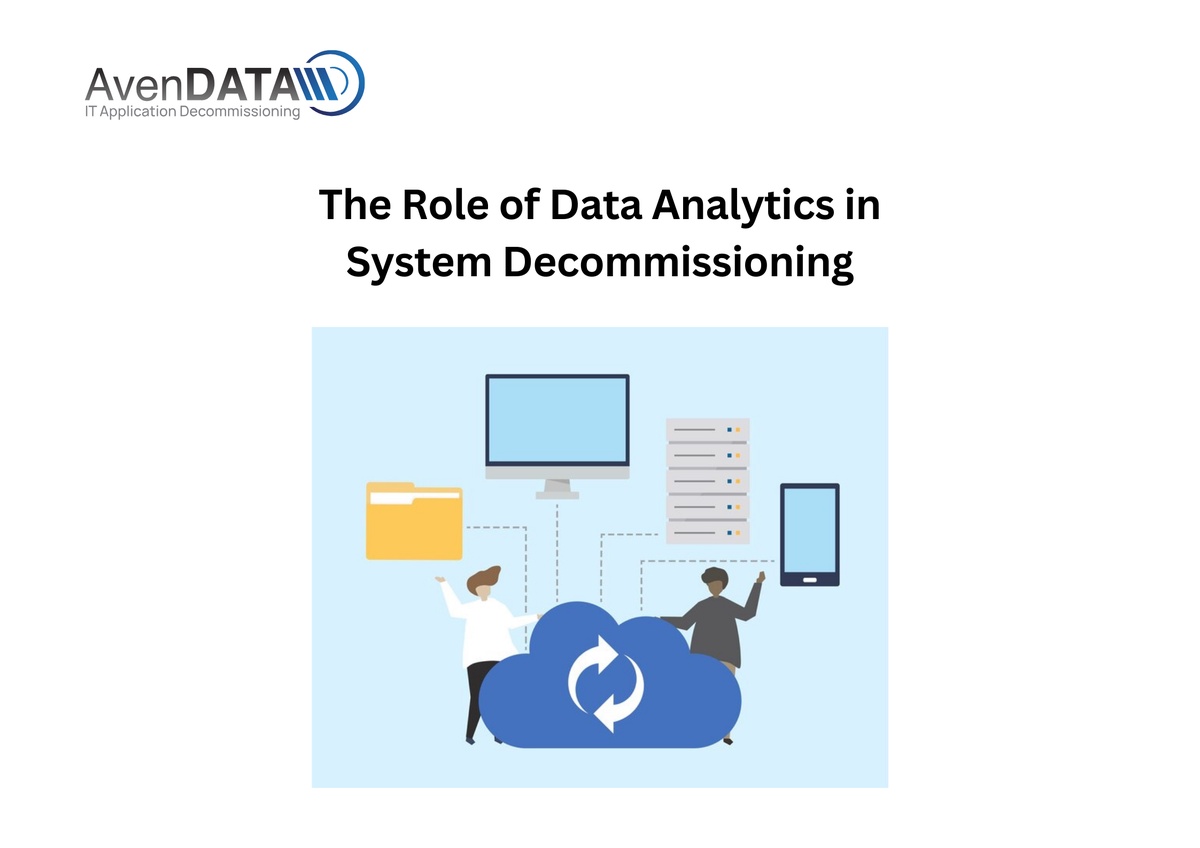Introduction: System decommissioning is a critical process that allows organizations to retire outdated or redundant systems, streamline IT infrastructure, and optimize resources. In this digital age, data analytics plays a crucial role in facilitating effective system decommissioning. By harnessing the power of data analytics, organizations can gain valuable insights, make informed decisions, and ensure a smooth and successful transition. This blog explores the role of data analytics in system decommissioning, highlighting its benefits and best practices for leveraging this transformative approach.
Data Analysis for System Assessment: Data analytics plays a pivotal role in assessing the value and relevance of systems targeted for decommissioning. By analyzing relevant data, organizations can gain insights into system usage, performance, and dependencies, enabling informed decision-making:
a. Usage Patterns: Analyzing usage patterns helps identify systems that are no longer actively used or have become redundant. By understanding the frequency and intensity of system usage, organizations can determine the necessity of maintaining those systems.
b. Performance Evaluation: Data analytics enables organizations to assess the performance of systems targeted for decommissioning. Analyzing metrics such as response times, error rates, and resource utilization provides a comprehensive understanding of system effectiveness and highlights areas for improvement.
c. Dependency Mapping: Data analytics helps organizations identify dependencies between systems, applications, and data. By mapping these dependencies, organizations gain insights into the broader impact of decommissioning a particular system and can plan for smooth transitions or necessary replacements.
Data Cleansing and Migration: During system decommissioning, data analytics plays a crucial role in data cleansing and migration processes, ensuring the integrity and security of valuable information:
a. Data Cleansing: Analyzing data from legacy systems helps identify duplicate, incomplete, or outdated records. Data cleansing ensures that only accurate and relevant data is migrated or retained, reducing the risk of errors and improving data quality in the new system.
b. Data Migration Planning: Data analytics provides insights into the volume, format, and structure of data in legacy systems. This information is instrumental in developing a comprehensive data migration plan, including mapping data fields, ensuring compatibility with the new system, and minimizing data loss or corruption.
c. Data Validation: Data analytics helps validate the accuracy and consistency of migrated data. By comparing data from the legacy system with the migrated data, organizations can identify any discrepancies or errors, ensuring the integrity and reliability of the new system.
Business Insights and Process Optimization: Data analytics not only supports the technical aspects of system decommissioning but also enables organizations to gain valuable business insights and optimize processes:
a. Identifying Efficiency Gaps: Analyzing data from legacy systems provides insights into inefficiencies or bottlenecks in existing processes. This information helps organizations identify opportunities for process optimization, automation, and streamlining, leading to improved operational efficiency.
b. Cost Analysis: Data analytics enables organizations to assess the financial impact of system decommissioning, including cost savings from reduced maintenance, licensing, and infrastructure support. This analysis provides a clear understanding of the return on investment and helps justify the decommissioning decision.
c. Risk Assessment: Data analytics helps organizations assess the potential risks associated with system decommissioning. By analyzing data security, compliance requirements, and potential impacts on business operations, organizations can develop robust risk mitigation strategies and ensure a smooth transition.
Conclusion: Data analytics plays a vital role in system decommissioning, providing organizations with valuable insights to make informed decisions, streamline processes, and optimize resources. By leveraging data analytics, organizations can assess system usage, evaluate performance, map dependencies, cleanse and migrate data, gain business insights, and optimize processes. Successful system decommissioning requires a thorough understanding of the data landscape and a strategic approach to data analytics. Embrace the power of data analytics in system decommissioning, and unlock the full potential of your organization’s digital transformation journey.
#AvenDATA #systemdecommissioning #itdecommissioning #decommissioning #legacydata


No comments yet